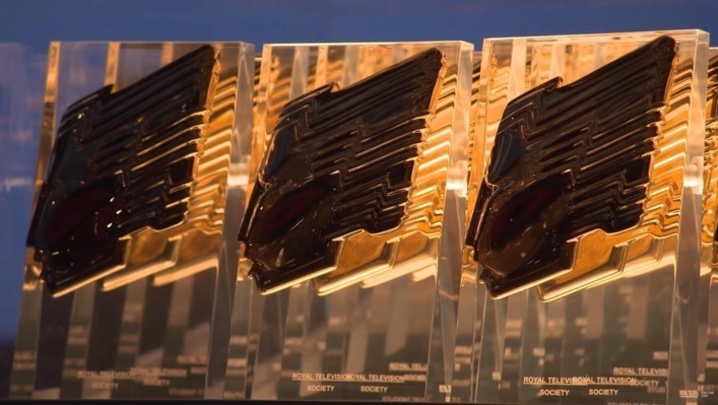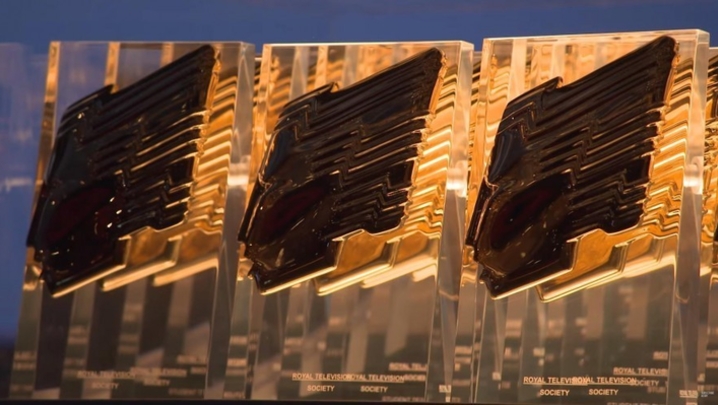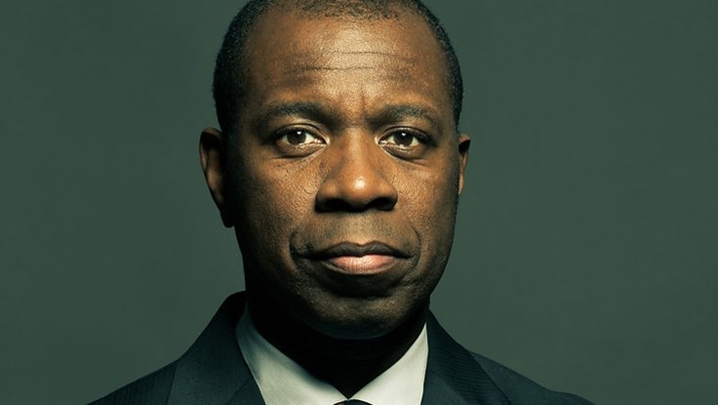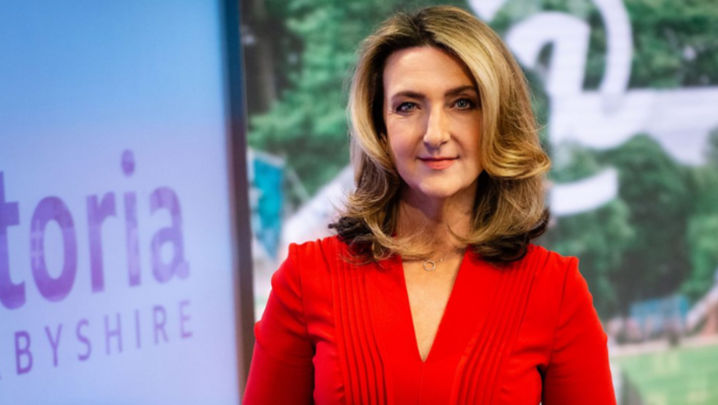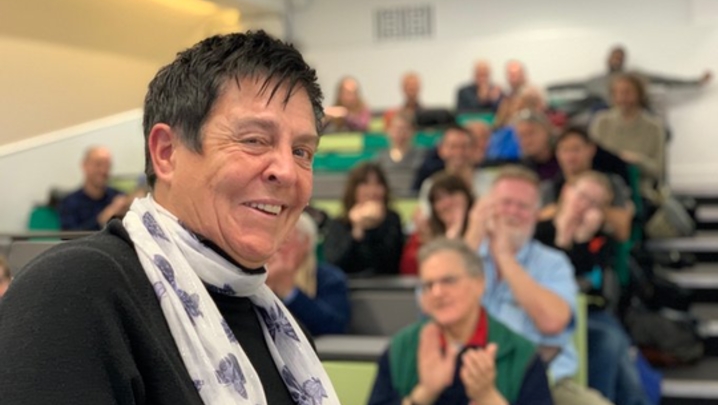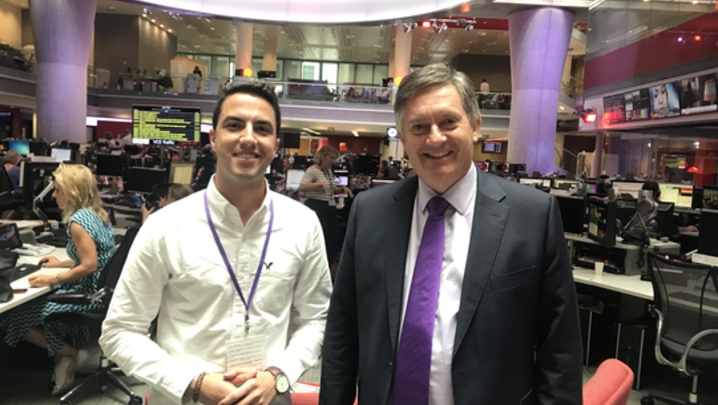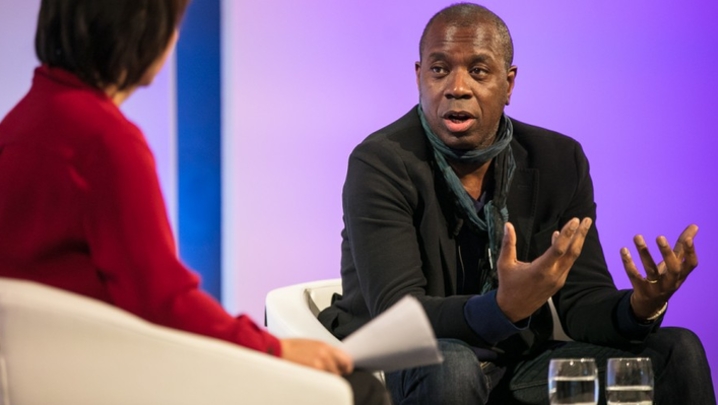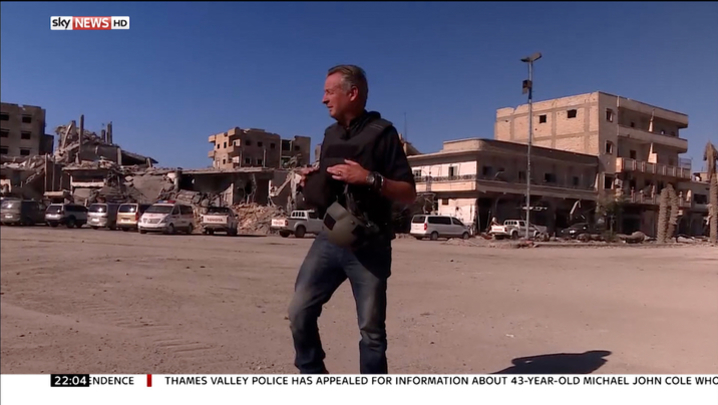As a child, Clive Myrie knew exactly what he wanted to be when he grew up.
“From a young age, seeing Sir Trevor McDonald on the TV who looked like me and spoke a bit like me, I thought, ‘if he can do it and he’s black, maybe I could do it too,’” he explains.
Myrie’s heart was set on a career in journalism but that he had to have a “good degree” to fall back on for his parents.
“My parents are first generation immigrants from Jamaica, they didn’t travel 6,000 miles for me to be a bum,” he laughs.
After completing a law degree, Myrie chose to pursue his childhood dream and earned a coveted place on the BBC journalism training course.
Although McDonald was the only black news reporter he saw on TV, it never deterred him from trying to enter the industry and was determined to be seen for his talent and not his race.
“I didn’t want to be seen as a black journalist,” Myrie muses. “I didn’t want race to define who I was at the very beginning of my career.”
“I tried to shy away from so-called ‘black stories’,” he explains. “I didn’t want to cover the Notting Hill Carnival; I didn’t want to cover some riots in the inner city.”
“The BBC understood and I will forever thank them for this," he explains, and as a result, his first posting was as a foreign correspondent in Japan. Now, 30 years later, the RTS award-winning journalist is confident in his own abilities and is the first to raise his hand to cover a so-called ‘black story’.
“At the end of the day, if someone says, ‘you only got that job because you’re black’ it doesn’t really matter, as long as you’re doing the job as well as any white person,” says Myrie. “Whatever some idiot might think, that’s their problem.”
During his years working as a journalist, Myrie has witnessed things people could only dream of, but the highlight of his career so far was covering the Obama election night and inauguration.
The election night saw Myrie report from the historic Morehouse College in Atlanta when it was announced that Barack Obama would be the next US president.
Going live to the David Dimbleby, Myrie was worried he was too emotional and personal. “I said, ‘for a black man like me to be here in this moment in history is a real privilege. It’s incredible.’”
However, when he looked over at the ABC News reporter, another black man, talking live to millions, he saw that he was in tears.
“I looked at him and just thought, ‘I have crossed no line whatsoever,'” says Myrie.
Striking the balance between being objective as a news journalist but also a human being is one that is always difficult, admits Myrie.
“People respond to the personal more than the impersonal. But it’s knowing where to draw the line between getting involved as a human being and making it all about you."

For Myrie, he sees American politics as the grandest of unfinished democratic experiments and finds that fascinating, “I read the New York Times and the Washington Post far more than I read British papers.”
“It’s constantly striving to be this perfect union and has never got there,” says Myrie. “You’d think a civil war might be enough to cleanse the air, but they just ended up having a different form of segregation with white and black areas and Jim Crow laws… when it comes to race, the country doesn’t talk about it, it’s ashamed and that means latent racism can linger and just develop like a cancer and grow.”
The murder of George Floyd in America last year led to demonstrations and marches all over the world. It was a death that Myrie says spoke to white America.
“For 200 years, Black America has known they’re going to get shot by the police or harmed by the police,” he says.
“Lockdown meant white America couldn’t turn it’s face away… you could avoid Rodney King, Trayvon Martin, Breonna Taylor, and that’s what most white people did. But they were forced to watch George Floyd because of Covid and that’s the difference,” Myrie believes.
“You look at those Black Lives Matter marches and there are lots of black people, but they’re outnumbered by white people… what happened with George Floyd was a teaching moment for white people.”
Myrie hopes this will act as a turning point and lead to a change in attitude and policy, but he also recognises there needs to be a full accounting for the police in America.
“Training for police officers is appalling, it’s a matter of weeks and yet they’re heavily militarised. There’s no sense they’re there to serve the public or are part of the community… you need much more community policing, not just this sort of invading army that comes in and catches criminals.”
Over the years, Myrie has witnessed very harrowing and emotional scenes and has a number of journalist friends who have suffered from post-traumatic stress.
“I try not to bring work home and mentally compartmentalise work and my private life, but certain situations and images stay with you,” he explains. “Try to get those images out of your head by doing things you love… switch your brain to the things that give you happiness.”
Finding happiness this past year has not been easy during the pandemic and multiple national lockdowns.
Covid-19 has dominated the national and global news, and the government briefings have been filled with graphs, data and statistics. For Myrie, he recognised the importance of adding a human element to those figures.
“Behind every one of those statistics is a life…we need to show what this actually means,” Myrie explains.
With unprecedented access to both staff and patients in a special report investigating the impact of the pandemic at the Royal Hospital London, Myrie showed viewers the shocking reality of a hospital filled with multiple floors of Covid patients and the emotional and physical turmoil people were going through.
“You’re talking about a crisis that’s the worst in the history of the NHS," he explains. "You’re effectively talking about a war… how does society cope with that psychologically?”
“Viewers are fairly ok if they see body bags in Syria or Afghanistan, yet are squeamish when it’s their own backyard.”
Myrie also recognises that there is a vocal minority who don’t believe in lockdowns and believe it is part of a nanny state, so showing those people what pressure on the NHS really looks like is essential.
As for where to report from next, he is interested to see how developing countries like Africa are dealing with the pandemic, due to an almost non-existent vaccine roll-out.
“Until the rest of the world is ok, we’re not ok, because even though our vaccine rollout is great, we’re an interconnected global world,” Myrie concludes.
Clive Myrie won the Television Journalist of the Year and Network Presenter of the Year awards at the RTS Television Journalism Awards 2021.


